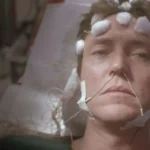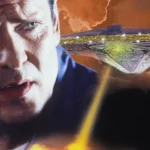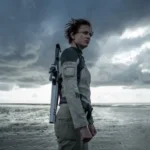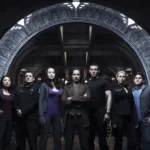SNOWPIERCER. This science fiction flick is a perfect illustration of social differences
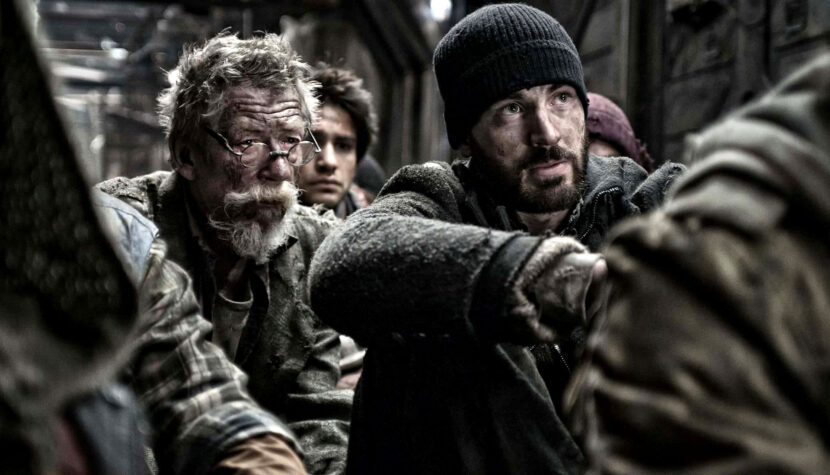
The future of humanity on the cinema screen usually doesn’t paint a very rosy picture. Korean director Bong Joon-Ho, in his film Snowpiercer also doesn’t predict anything good for us and foresees a global climate disaster. What we see on the screen is far from disappointment, but the creator himself faced disappointment in his confrontation with Hollywood and distributor Harvey Weinstein. The creator decided to return to his homeland and continue making films there… a pity.
To explain to someone what a revolution is, what it results from, and what class struggle is, it is best to show them Snowpiercer. It is a perfect illustration of social differences among people that lead to rebellion.
In the near future, the government plans to release gas into the air. The intentions are good, but the action turns out to be tragic in its consequences. After several years, the Earth is engulfed in eternal, extremely cold winter. All life perishes, and those who manage to survive end up in an indestructible, sacred train racing through all of Europe. It would seem that the passengers are winners. After all, they managed to survive global destruction. However, the truth is different because the train is divided into classes. Those in the front live very well—delicious food, excellent living conditions. Those in the rear, however, live in hell. The necessity of eating their fellow passengers to satisfy hunger is their daily bread. Living like this is unacceptable. Curtis (Chris Evans) has a plan—he wants to get to the front of the “Ark” and overthrow the tyranny.

In the initial scenes, we see the conditions in which Curtis and the others live. They have nothing to do with humanitarianism, but rather resemble the transportation of Soviet labor camp convicts. Armed officers appearing from time to time illustrate the totalitarianism of the system prevailing in the train. High-ranking dignitaries also appear here, dressed in suits or impeccable, colorful clothes and uniforms. In contrast, those traveling in the last carriages are immersed in grayness and dirt. Evans, known for his role as Captain America, is no longer a well-groomed, handsome superhero. He is a true tough guy with a thick beard, dreaming only of bloody revenge for all the wrongs that befell him. Evans played the role of the leader of the oppressed very credibly. Overall, the actors in Snowpiercer performed excellently, whether it’s the chronol-dependent (a future drug) Asian engineer Kang-ho Song or Tilda Swinton as a caricatural, fanatical admirer and subordinate of Wilford (Ed Harris)—the ruler of the train.
Related:
When the characters begin their assault on the front compartments and capture additional carriages, everything begins to resemble a computer game, with its tasks and even “bosses.” At each subsequent “level,” you have to talk or fight with someone. All compartments differ drastically from each other, like successive micro-worlds in games.
As events unfold, we begin to feel that the film is an Asian work. The director weaves elements taken from his culture into the film, and we know that it can be exotic and full of strange phenomena that may be indigestible for Europeans. A huge guard with an equally large hammer is almost a copy of characters we might associate with anime or manga films. The scene where the characters reach the train’s school for a history lesson becomes exaggerated, almost grotesque. For Koreans, such images may be ordinary, but for me, they slightly spoiled the overall impression.

The audiovisual presentation of the film is masterful and does not overshadow the story itself. The fight scenes are executed with finesse. The director also doesn’t shy away from showing blood and acts of brutality. It is one of the better adaptations of comics in recent years, as Snowpiercer is based on the French comic book story “Le Transperceneige.”
Joon-Ho Bong does not rush with the action. Although his locomotive is speeding, he tries to press the brakes. There are not as many moments that will accelerate our heartbeat as one would expect from a work about the desire for bloody revenge. Despite a few flaws, Snowpiercer is closer to the TGV than to the Polish PKP.


